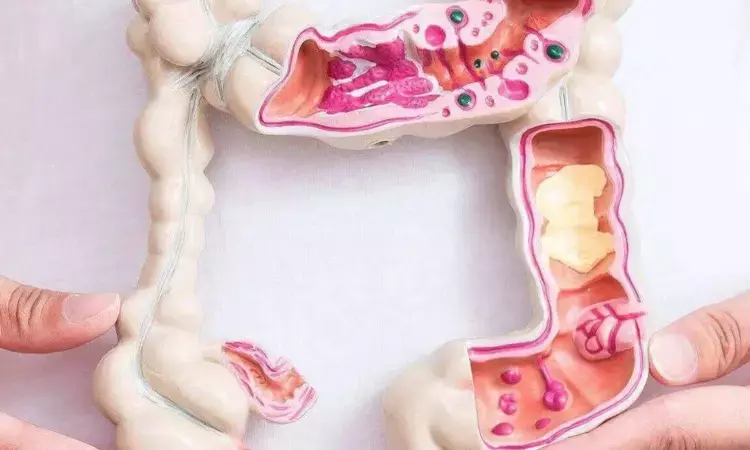- Home
- Medical news & Guidelines
- Anesthesiology
- Cardiology and CTVS
- Critical Care
- Dentistry
- Dermatology
- Diabetes and Endocrinology
- ENT
- Gastroenterology
- Medicine
- Nephrology
- Neurology
- Obstretics-Gynaecology
- Oncology
- Ophthalmology
- Orthopaedics
- Pediatrics-Neonatology
- Psychiatry
- Pulmonology
- Radiology
- Surgery
- Urology
- Laboratory Medicine
- Diet
- Nursing
- Paramedical
- Physiotherapy
- Health news
- Fact Check
- Bone Health Fact Check
- Brain Health Fact Check
- Cancer Related Fact Check
- Child Care Fact Check
- Dental and oral health fact check
- Diabetes and metabolic health fact check
- Diet and Nutrition Fact Check
- Eye and ENT Care Fact Check
- Fitness fact check
- Gut health fact check
- Heart health fact check
- Kidney health fact check
- Medical education fact check
- Men's health fact check
- Respiratory fact check
- Skin and hair care fact check
- Vaccine and Immunization fact check
- Women's health fact check
- AYUSH
- State News
- Andaman and Nicobar Islands
- Andhra Pradesh
- Arunachal Pradesh
- Assam
- Bihar
- Chandigarh
- Chattisgarh
- Dadra and Nagar Haveli
- Daman and Diu
- Delhi
- Goa
- Gujarat
- Haryana
- Himachal Pradesh
- Jammu & Kashmir
- Jharkhand
- Karnataka
- Kerala
- Ladakh
- Lakshadweep
- Madhya Pradesh
- Maharashtra
- Manipur
- Meghalaya
- Mizoram
- Nagaland
- Odisha
- Puducherry
- Punjab
- Rajasthan
- Sikkim
- Tamil Nadu
- Telangana
- Tripura
- Uttar Pradesh
- Uttrakhand
- West Bengal
- Medical Education
- Industry
Metagenomic next-generation sequencing improves diagnosis of intra abdominal infections in sepsis patients: Study

Researchers have found that metagenomic next-generation sequencing (mNGS) of paired plasma and peritoneal drainage (PD) fluid samples offers superior diagnostic and therapeutic utility in the management of septic patients with suspected acute intra-abdominal infections (IAIs). This novel approach has shown promise in optimizing empirical antibiotic use and improving patient outcomes. This study was published in BMC Infectious Diseases. The study was conducted by Jia-Yu Mao and colleagues.
Acute intra-abdominal infections are a significant cause of morbidity and mortality in critically ill patients. Accurate diagnosis and effective treatment are essential to improve patient outcomes. Culture-based microbiological tests (CMTs) have been the standard method for detecting pathogens, but they have limitations. Metagenomic next-generation sequencing (mNGS) has been increasingly applied in sepsis and offers a comprehensive approach to pathogen detection.
In a prospective study conducted from October 2021 to December 2022, 111 septic patients with suspected IAIs were enrolled. Pairwise CMTs and mNGS of plasma and PD fluid samples were performed to detect pathogens. The mNGS group underwent therapeutic regimen adjustment based on mNGS results for improved treatment. Researchers analyzed the microbial community structure, clinical features, antibiotic use, and prognoses of the patients.
The key findings of the study were:
• mNGS demonstrated higher positivity rates than CMTs for both PD fluid (90.0% vs. 48.3%, p < 0.005) and plasma (76.7% vs. 1.6%, p < 0.005).
• The combination of mNGS and CMT methods provided clues of suspected pathogens in 90% of enrolled patients.
• Gram-negative pathogens, including a great variety of anaerobes represented by Bacteroides and Clostridium, comprised most intra-abdominal pathogens.
• Patients with matched plasma and PD mNGS results exhibited higher mortality and sepsis severity.
• Reduced usage of carbapenem (30.0% vs. 49.4%, p < 0.05) and duration of anti-MRSA treatment (5.1 ± 3.3 vs. 7.0 ± 8.4 days, p < 0.05) were observed in the mNGS group.
The study suggests that pairwise plasma and PD fluid mNGS offers improved microbiological diagnosis compared to CMTs for acute IAI. The high positivity rates observed with mNGS indicate its potential as a valuable diagnostic tool. The matched plasma and PD mNGS results may predict poor prognosis, suggesting the need for more aggressive management.
Combining plasma and PD mNGS can enhance microbiological diagnosis and predict poor prognosis in patients with acute IAIs. mNGS may enable optimized empirical antibiotic use, reducing the use of broad-spectrum antibiotics and enhancing targeted therapy.
Reference:
Mao, J.-Y., Li, D.-K., Zhang, D., Yang, Q.-W., Long, Y., & Cui, N. (2024). Utility of paired plasma and drainage fluid mNGS in diagnosing acute intra-abdominal infections with sepsis. BMC Infectious Diseases, 24(1). https://doi.org/10.1186/s12879-024-09320-1
Dr Riya Dave has completed dentistry from Gujarat University in 2022. She is a dentist and accomplished medical and scientific writer known for her commitment to bridging the gap between clinical expertise and accessible healthcare information. She has been actively involved in writing blogs related to health and wellness.
Dr Kamal Kant Kohli-MBBS, DTCD- a chest specialist with more than 30 years of practice and a flair for writing clinical articles, Dr Kamal Kant Kohli joined Medical Dialogues as a Chief Editor of Medical News. Besides writing articles, as an editor, he proofreads and verifies all the medical content published on Medical Dialogues including those coming from journals, studies,medical conferences,guidelines etc. Email: drkohli@medicaldialogues.in. Contact no. 011-43720751


